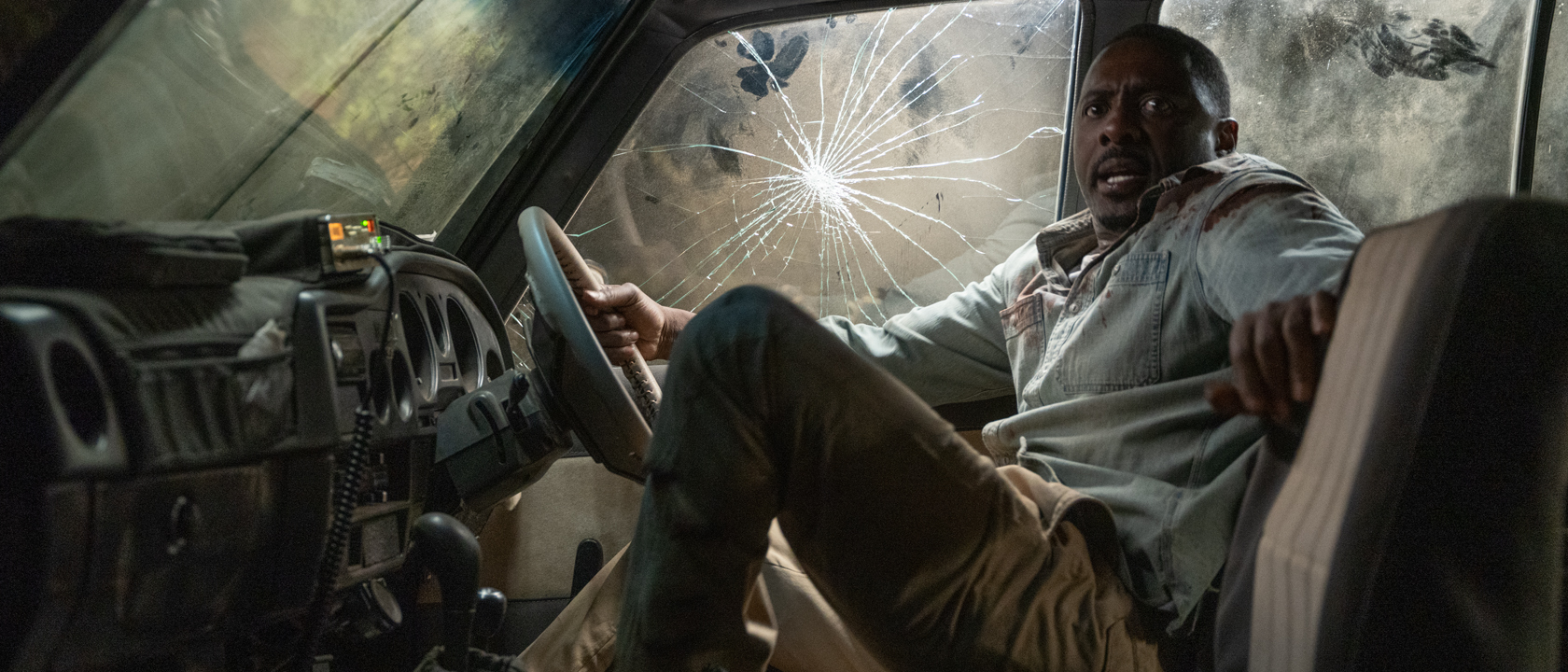A high-concept thriller like Baltasar Kormákur's Beast really only has two primary jobs – a result of working with a boiled down premise. The characters have to be interesting and engaging, keeping the audience invested in their plight and survival, and the threat that they are facing has to maintain constant pressure that the protagonists and audience feel even when it isn’t represented on screen and in your face. The great news about the new film is that it has all of the proper pieces in play, featuring a small ensemble getting attacked by a wild, massive lion while on safari, but the problem is utilization, as this is an August release that does far too much ebbing and flowing for its own good. It creates an uneven experience that delivers solid creature feature highs, but also some dull lows.
Beast knows that its greatest asset is its feral wildcat, and it doesn’t quite know what to do with itself when it’s not around. It leaves a lot on the table when it comes to the perils of being stranded in the middle of an African savannah with no communication available, and is satisfied doing the minimum when it comes to what could be called “human stuff” in the context of the material.
Written by Ryan Engle and based on a story by Jaime Primak Sullivan, Beast stars Idris Elba as Nate Samuels, a doctor who makes an effort to try an reconnect with his two daughters, Norah (Leah Jeffries) and Mere (Iyana Halley), following the death of their mother. The three make a trip to South Africa, a place that was very special to the family’s departed matriarch, and they meet up with Martin Battles, a self-described enforcer for a reserve who protects the area from poachers.
The day after their arrival, Nate, Norah, and Mere head out on Martin’s personal VIP tour of the area in a protected Jeep, and they are stunned by the sights of giraffes, rhinoceroses, elephants and more. When they make a stop at a village and discover that everybody has been slaughtered, however, they quickly realize that something is very wrong, and that they are in very real danger. The perpetrator of the attack is a massive male lion that has done the feline equivalent of mentally snapping after its entire pride is wiped out by poachers, and it has begun killing humans not for food or self-preservation, but in what read as acts of vengeance.
Beast's lion attack scenes are thrilling and well done.
It should hardly be a surprise that Beast’s best sequences come together when the lion is on the prowl and savagely attacking the protagonists, as that’s always going to be the bread-and-butter of this kind of cinematic experience, but the work nonetheless deserves specific praise. The visual effects, for starters, are impressive for what is clearly a production that most definitely wasn’t working with a blockbuster budget. CGI animals can be tricky business (it’s really the only drawback of Alexandre Aja’s otherwise exceptional Crawl from 2019, for example), but the big cat here has weight, presence, and a dangerous energy. The claws and teeth coming through the windows of the Jeep feel authentic, as do the desperate punches and kicks by the humans to try and ward it off.
Baltasar Kormákur further comes at the material with a smart and daring approach. While we regularly see movies use frenetic editing to get across a sense of chaos in attack scenes like those in Beast, Kormákur goes in the opposite direction with this movie, and it’s impressive. Smart blocking and camera work results in long, one-shot moments that build tension naturally, and in the most heightened moments the audience is kept in the action with the characters and not cinematically distanced from it with cuts to a new angle or a reaction. This smart filmmaking isn’t totally limited to just the cat-centric action/horror either, as there is dream-within-a-dream-within-a-dream sequence that feels more like magic than expert camerawork.
Beast drags far too much when the lion isn't around.
One goes into a movie like this expecting awesome animal attacks, but also hoping for a bit more, and that’s where Beast ends up being a letdown. The first act is used to establish some interesting interpersonal dynamics – like Mere resenting Nate for being separated from her mother while she was being treated for the cancer that ultimately killed her, and Martin revealing that he didn’t go to the funeral in New York because he felt that she should have been put to rest in South Africa. However, these never develop into anything particularly interesting over the course of the film (the latter is never addressed again, and the former is background motivation for Nate to protect his daughters… which is something we really expect from any dad on the big screen regardless). The characters are relatable, but there isn’t ever anything particularly special about any of them, and that stops the movie from feeling special.
This basic approach to the protagonists is matched by a basic approach to the story. As frightening as a massive, psychopathic lion is, the movie seems to forget that the beast isn’t the only scary thing about being stranded in the middle of a savannah with no transportation or communication. There is an extremely brief conversation about rationing water, and one character comes close to being bitten by a snake, but there are zero conversations about what to do for food, there are no overt wilderness survival tactics initiated, and there is even a full sequence in what is established as crocodile-infested waters… but the reptiles never show up. The characters feel safe whenever the central threat isn’t around, and it’s devastating to the stakes. This is a film that could easily keep its boot on your neck with tension from a wide variety of sources, but it doesn’t bother, and it only gets interesting when the lion is prowling around.
With a late August release date, Beast is set up to come out with baseline expectations, and it’s proficient as a late summer cinematic distraction… but it’s also difficult to applaud wasted potential. There is a lot to like in the movie, but not as much as there should be.

Eric Eisenberg is the Assistant Managing Editor at CinemaBlend. After graduating Boston University and earning a bachelor’s degree in journalism, he took a part-time job as a staff writer for CinemaBlend, and after six months was offered the opportunity to move to Los Angeles and take on a newly created West Coast Editor position. Over a decade later, he's continuing to advance his interests and expertise. In addition to conducting filmmaker interviews and contributing to the news and feature content of the site, Eric also oversees the Movie Reviews section, writes the the weekend box office report (published Sundays), and is the site's resident Stephen King expert. He has two King-related columns.











